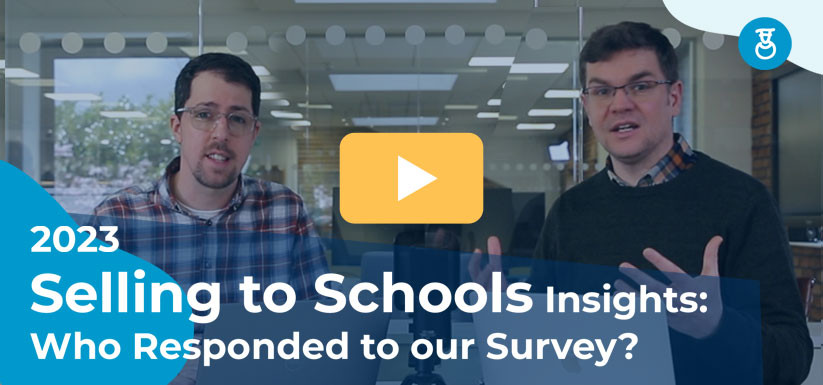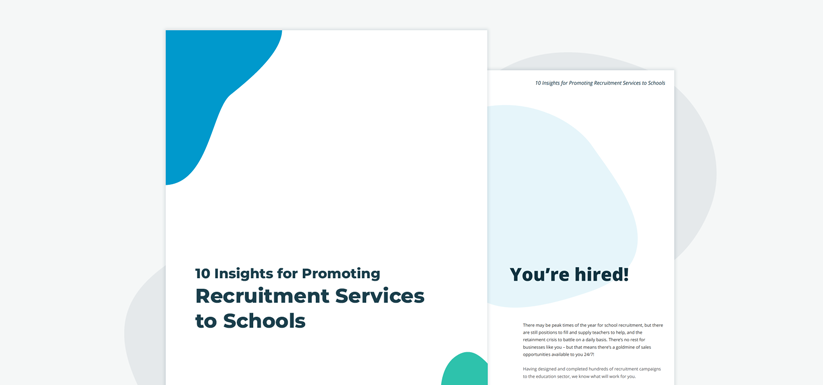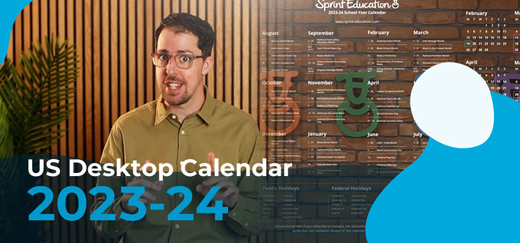Can You Plug The PSHE Gap in Schools? [5 Top Tips]
Can You Plug The PSHE Gap in Schools? [5 Top Tips]
Sprint Copywriter Dan explores the big opportunity for PSHE providers to play a key role in the education sector.
Sprint Copywriter Dan explores the big opportunity for PSHE providers to play a key role in the education sector.
There can’t be many people who don’t agree with me when I say PSHE is a crucial part of a child’s development; it prepares pupils for the sticky situations society throws at them and teaches them valuable life lessons that go way beyond the four walls of the classroom.
However, despite its recognised importance with parents, teachers, and Ofsted, successive governments have stubbornly continued to ignore recommendations to make PSHE a statutory subject in the curriculum. Even though categoric evidence shows that well-delivered programmes have a massive impact on both academic and non-academic pupils – particularly the most disadvantaged.
And in the absence of a structured PSHE program, most young people are getting their information from the internet, television, and social media; hardly the sources you’d choose to fill this educational void. The upshot of this is that young people are being left very poorly equipped for the modern challenges of developing healthy, happy relationships and lifestyles.
Only very recently, the NSPCC – a leading children’s charity – cited evidence that nearly 19,000 children were admitted to hospital after harming themselves last year. That’s a 14% rise over three years and a very poor reflection on how we’re preparing our young people for the modern world.
So, with PSHE not receiving the backing that it so desperately needs, and with schools and teachers having to do the best they can with limited budget and training, it’s increasingly left to external providers such as you to plug the gaps.
Here are my top tips for ensuring your educational business is perfectly placed for providing a solution to their needs…
Ensure it’s not just a quick fix
Workshops, assemblies, lesson plans… they’re all fantastic! However, the most appetising solutions will be the ones that help schools to build up their in-house capacity to teach PSHE in an outstanding way. Ensure you offer a CPD element to your service so that teachers can see that you can help them with a long-term solution. In 20% of schools there is little or no staff training when it comes to PSHE so there is a massive gap there.
Help them empower their students
A big part of the problem is that teachers don’t have the expertise to teach PSHE effectively in their schools; therefore they will instantly see the benefits of a peer-led program. Ultimately it’s the school’s students that deal with these issues on a daily basis so empowering them to take the lead for educating their peers and parent community is an extremely attractive solution.
Make it cross-curricular
There is simply not enough time in the school day devoted to PSHE. Therefore, it’s crucial that teachers are able to build PSHE into other areas of the national curriculum. If your solution can help them to do this then it will be so much easier for schools to use your services.
Help students develop practical skills
A recent Ofsted report found that, although students had a good understanding of what they needed to do in order to keep themselves safe, many lacked the skills (such as assertiveness) required to apply what they had learned to real-life situations. In another example, the majority of students understood the importance of applying security settings on social networking sites; however they often didn’t know how to apply these. Therefore it’s crucial that your solution helps students to develop these practical skills.
Put assessment at the core of what you offer
Ofsted identified that by far and away the weakest aspect of PSHE provision in schools is the assessment of pupils’ learning, which was identified as far weaker than all other areas of the curriculum. Therefore, make sure that what you offer enables teachers to check or build on pupils’ previous knowledge and build in more rigorous assessment.
This gap in the curriculum, coupled with what can only be described as an epidemic of poor mental health in schools, means that there is an urgent need for external providers to play a pivotal role in PSHE education provision. If you think you are well equipped to make a real difference in the lives of young people in the UK, and help schools tackle the issues I’ve mentioned in this blog, then get in touch with us and we can devise a bespoke marketing strategy just for you.
Tags
Email Teachers
How to Sell to Schools
Marketing to Schools
UK School Database
Similar Articles


VIDEO: Selling to Schools Insights - Chapter 1
Analyse chapter 1 of The State of Selling to Schools 2023, exploring target audiences and their responsibilities to maximise your reach and make more sales.


Marketing Recruitment Services to Schools
Learn 10 game-changing insights especially for recruitment service providers to enhance your education marketing campaigns when emailing schools.


Expert marketing to K-12 support and solutions
Expert marketing to K-12 solutions
Email Principals, Teachers, and District Staff Inboxes
Email teachers and staff inboxes
Sell More to US and Global Schools and Districts
Sell more to schools and districts

























